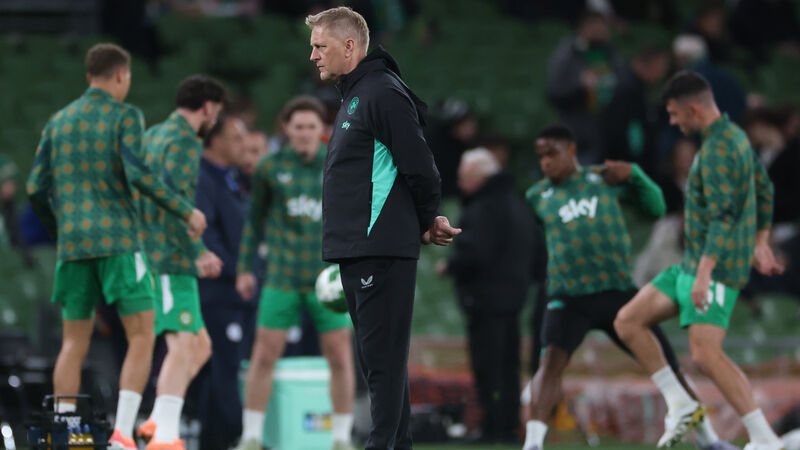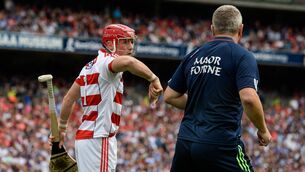Colin Sheridan: What life in a war-torn country taught me about Irish football

PUNCHING BELOW OUR WEIGHT: Ireland's manager Heimir Hallgrímsson after the win over Armenia last week. Pic: INPHO/James Crombie
When yours truly was deployed to the former Yugoslav province of Kosovo as a peacekeeper over 20 years ago, the most striking thing about the landscape wasn’t the remnants of war, but the domes inflated across the countryside.
These weren’t airplane hangars or mushroom houses; they were football pitches. AstroTurfed, full-sized, covered, and air-conditioned - gleaming like space capsules on a battered moon-scape. Their purpose was simple: to protect against the severity of the bitter Balkan winter and provide a refuge for teams and teens to congregate and play ball. It’s about 25 kilometres from the capital Pristina to the town of Lipjan, where most of the Irish were based. Along that short stretch of road, I can recall at least four of these facilities.








